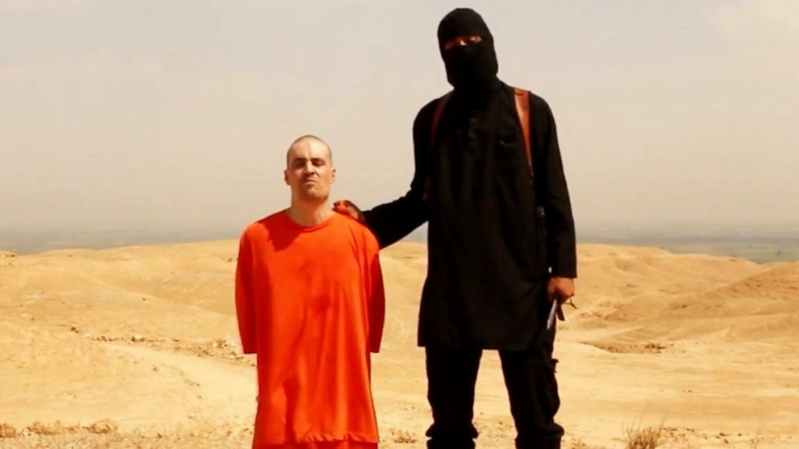
White House officials announced on Tuesday that relatives of U.S. citizens abducted by terrorists and other criminal groups will be allowed to engage in private ransom negotiations without the threat of criminal prosecution. However, the U.S. government's own policy of not paying ransom to terrorists would continue.
According to David Jackson and Kevin Johnson of USA Today, President Obama will make the announcement following a seven-month review of hostage recovery efforts. The president also plans to create a government unit called the "Hostage Recovery Fusion Cell" composed of officials from the State Department, FBI, intelligence agencies and the Pentagon to coordinate tracking and recovery efforts.
"We hope to be the last family that fails to receive the level of coordinated government support that those who serve abroad deserve when trouble finds them," said Elaine Weinstein, wife of American aid worker Warren Weinstein, who died as a hostage of al-Qaida in a U.S. drone strike in Pakistan. "As Warren's case makes painfully clear, the people who take American citizens working abroad as hostages do not discriminate based on their job or employer, and neither should our government."
USA Today reported that Weinstein's husband worked for a U.S.-based consulting firm, a contractor for the U.S. Agency for International Development, which helped Pakistani business and government agencies.
"This review will not bring Warren back," Weinstein said. "It is our most sincere hope that it was conducted fully and frankly so the U.S. government can have an honest conversation about the areas where it falls short. Our benchmark for this review's success will be the actions arising from it more than its specific findings."
Sunlen Serfaty and Jeremy Diamond of CNN elaborated on the president's new directive. Until now, the Obama administration has looked the other way when Americans have paid private ransoms to free overseas hostages, even though it is technically illegal under U.S. law.
"The new directive will not include a formal change to existing laws," Serfaty and Diamond wrote. "But administration officials will state publicly for the first time that ransom payments will be tolerated."
CNN reported that the review on the policy was led by Lisa Monaco, Obama's top counterterrorism adviser. She sent letters to 82 families and former hostages dating back to 2001, encouraging them to be part of the review process and provide views based on their experiences.
"We understand this is incredibly difficult and painful for the families and we appreciate their feedback," a senior official said. "(Their feedback) has been invaluable and helped us examine ways to improve our processes and communicate with the families most effectively to achieve our shared objective of ensuring the safe return of a loved one."
Diane Foley, the mother of American journalist James Foley, who was beheaded by ISIS militants back in August, harshly criticized U.S. policy on hostage situations. According to CNN, she felt "embarrassed and appalled" with how the U.S. government treated her son's case.
"I think our efforts to get Jim freed were an annoyance," Foley said of U.S. government efforts to free her son. "It didn't seem to be in (the U.S.) strategic interest."
However, Rep. Duncan Hunter, R-Calif., has raised skepticism of the early details about the hostage review. CNN reported that he pushed the Obama administration to conduct the review in the first place.
"The changes offered up by the White House prove that neither the right questions were asked nor were any lessons learned," Hunter said. "Wholesale changes are needed, but what's being put forward is nothing more than window dressing, I fear."
Hunter contended that placing the Fusion Cells within the FBI was a mistake.
"It's a pathetic response to a serious problem that has plagued the ability of the U.S. to successfully recover Americans held captive in the post-9/11 era," Hunter said.
An administration official told CNN that the policy on hostage negotiations had to evolve thanks to new challenges.
"Terrorist groups have become increasingly willing to engage in publicized and repugnant murders of hostages if they are unable to extract concessions," the administration official said. "They deliberately target private citizens as well as government officials to garner media attention and attempt to extract political and financial concessions."







